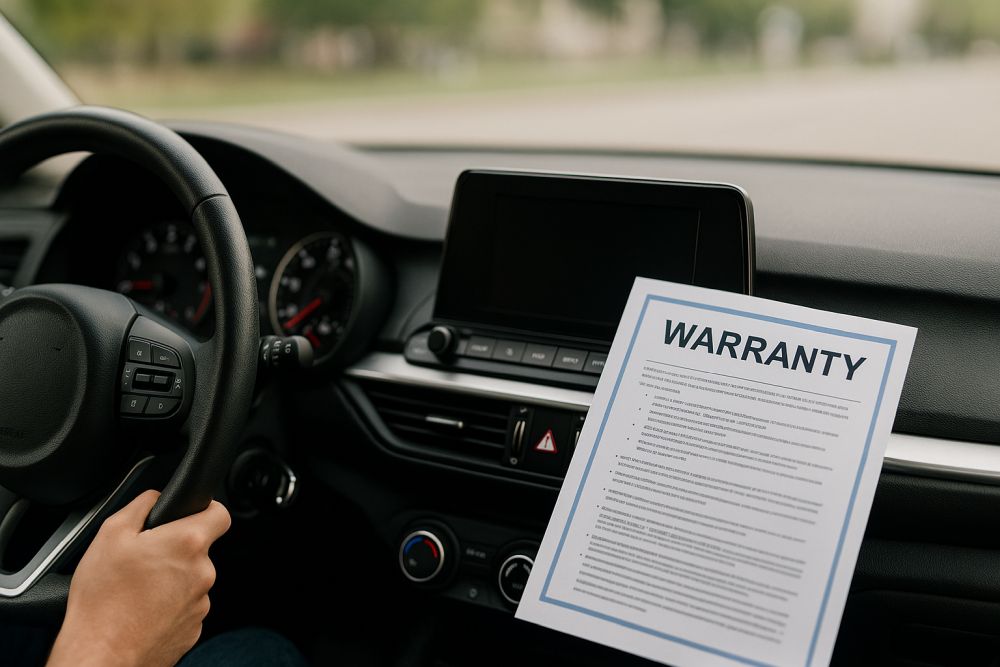When purchasing a used vehicle in New York, one of the critical concerns for buyers is ensuring the car’s mileage is accurate. Odometer fraud is a deceitful practice that involves rolling back or altering the mileage reading on a vehicle’s odometer to make it appear less used than it truly is. This fraudulent activity can significantly impact the value and reliability of a vehicle, leading to unforeseen maintenance issues and financial loss. As a savvy car buyer or owner, understanding and avoiding odometer fraud is crucial to making informed decisions. Utilizing tools like a vin number search free is an essential step in verifying a vehicle’s history and safeguarding your investment.
Understanding Odometer Fraud in New York
Odometer fraud is a widespread issue that affects not only New York but also the entire United States. The National Highway Traffic Safety Administration (NHTSA) estimates that over 450,000 vehicles are sold each year with false odometer readings, costing American car buyers more than $1 billion annually. In New York, this problem is particularly concerning due to the state’s large market for used vehicles.
How Odometer Fraud Occurs
Odometer fraud can occur in several ways, each with varying levels of sophistication:
- Manual Tampering: This involves physically altering the odometer’s numbers to display a lower mileage.
- Digital Manipulation: Modern vehicles with digital odometers can be reprogrammed using electronic devices to alter the mileage.
- Replacing the Odometer: In some cases, the entire odometer unit is replaced with one showing lower mileage.
Steps to Avoid Odometer Fraud
To protect yourself from odometer fraud, consider the following steps:
1. Examine the Vehicle History Report
Always request a comprehensive vehicle history report from a reputable service. This report provides a detailed account of the vehicle’s past, including previous mileage readings, accident history, and ownership changes. Discrepancies in mileage records can be a red flag for odometer tampering.
2. Inspect the Vehicle Thoroughly
Look for signs of wear and tear that do not match the odometer reading. Excessive wear on the pedals, seats, and steering wheel can indicate higher mileage than what is displayed. Additionally, check for signs of odometer tampering such as loose screws around the dashboard or misaligned numbers.
3. Use a VIN Decoder
Employing a VIN decoder is an effective way to verify a vehicle’s specifications and history. The Vehicle Identification Number (VIN) is unique to each car and can provide valuable information about its past. By using a VIN decoder, such as the free tool available on VinCheckPro, you can cross-reference the odometer reading with recorded mileage data, ensuring consistency and accuracy.
4. Conduct a Professional Inspection
Before finalizing a purchase, consider hiring a certified mechanic to perform a thorough inspection of the vehicle. A professional can identify potential signs of odometer fraud and assess the car’s overall condition, offering peace of mind and helping you make an informed decision.
The Role of VIN Decoding in Preventing Odometer Fraud
VIN decoding is a powerful tool in the fight against odometer fraud. By decoding a vehicle’s VIN, you can access critical information about the car’s history, including its make, model, year, and recorded mileage. This information is vital for verifying the accuracy of the odometer reading and ensuring the vehicle’s legitimacy.
Using a license plate lookup New York in conjunction with VIN decoding can further validate a vehicle’s history, providing a comprehensive overview that includes title records, accident reports, and previous ownership details. This holistic approach empowers you to make informed purchasing decisions and avoid fraudulent activities.
Frequently Asked Questions about Odometer Fraud in New York
What are the penalties for committing odometer fraud in New York?
In New York, odometer fraud is a serious offense that can result in both civil and criminal penalties. Perpetrators may face fines, restitution payments to victims, and imprisonment, depending on the severity of the fraud.
How can I report suspected odometer fraud?
If you suspect odometer fraud, you can report it to the New York Department of Motor Vehicles (DMV) or the National Highway Traffic Safety Administration (NHTSA). Providing detailed information and any supporting documentation will aid in the investigation.
Are there any telltale signs of odometer tampering?
Common indicators of odometer tampering include inconsistent mileage records, excessive wear and tear that doesn’t match the odometer reading, and physical signs of tampering around the dashboard.
Can a vehicle history report guarantee the accuracy of an odometer reading?
While a vehicle history report is a valuable tool for identifying discrepancies in mileage records, it cannot guarantee accuracy. It’s essential to use multiple methods, including VIN decoding, to verify a vehicle’s history comprehensively.
Is odometer fraud more prevalent in older or newer vehicles?
Odometer fraud can occur in both older and newer vehicles, but digital odometers in newer models can be more susceptible to electronic manipulation. Always be vigilant, regardless of the vehicle’s age.


